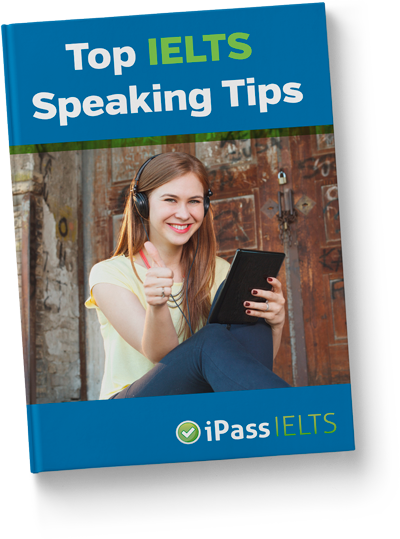IELTS Reading made easier - multi-choice questions
Reading passages in the Academic IELTS test are approximately 800-1000 words and can be from a range of subjects including health, science, technology and the environment.
The title of this article is called “Understanding the Misunderstood Teenage Brain”
Don’t forget the 3 top tips that we gave you last time:
STEP 1: Read the article quickly to get a general idea of what it is about. (2-3 mins)
Top Tip: Underline 2-3 key words in each paragraph as you read to help you remember the main topic of each section.
STEP 2: Read the questions carefully and underline the most important words in each question to help you focus on what type of information is needed from the article.
Top Tip: Remember that the answers will appear in the article in the same order as the questions.
STEP 3: Use the hints below each question to help you locate the answers.
Top Tip: Don’t expect to find the exact words from the questions in the article - you often have to look for synonyms and paraphrased sentences.
The teenage brain can be a confusing and misunderstood place. But a brain scientist and mother to two teenagers clears up some of the mystery.
Frances Jensen is a neuroscientist. She has been studying the human brain for almost all of her career. But even she was not ready for the job of raising two teenage boys. What made this task so difficult? Trying to find out why intelligent and responsible young people still did stupid things. So, Dr. Jenson did what any neuroscientist would do: she spent years of research on the teenage brain. What she found might clear up some of the myths about teenagers. Her findings might also provide help for parents, teachers … and anyone hoping to understand the complex mind of a teenager.
Myth 1 – A teen’s body and brain grow at the same pace
When children reach puberty, their bodies change. Teenagers start to look like adults. You might think that their brains are also becoming more like adult brains. Not true, says Dr. Jensen. “The brain is the last organ in the body to mature. And it takes into the mid-20s for it to complete.” Dr. Jensen says if one compares the brain to a puzzle, the teenage brain has many puzzle pieces still not in place. She says the teen brain has a different structure and chemistry from an adult brain. “The teenage brain has only about 80 percent of the adult brain’s structure and function.”
Dr. Jensen recently wrote a book on teenagers and their brains, called The Teenage Brain: A Neuroscientist’s Survival Guide to Raising Adolescents and Young Adults. In it, she explains the strengths and weaknesses of the brain during this time of development. She says the connections, or wiring, of the teen brain is better for learning new things than the adult brain.
First, Dr. Jensen explains how the brain works. She says we are able to learn through synapses - areas where brain cells talk to each other. The chemicals responsible for synapses are found in high levels in children. Then they drop a little in teenagers and even lower in adults. Dr. Jensen explains that this is why children learn things like languages so easily. “The proteins involved in building synapses for learning are at higher levels in the child, then decrease with age, which is why a child can learn two or three languages flawlessly and a teenager is pretty good, better than an adult in terms of the rate at which they can learn and absorb information.”
So, the teenage brain has an increased ability to learn but it does not yet have all the connections to make that learning possible. This is one reason why teenager behavior is often difficult to understand. Dr. Jensen compares this situation to a driver who is able to drive but who does not know yet how to use the brakes. Some parts of the teenage brain are simply not yet connected, she explains. These areas are the ones responsible for judgment, making good decisions, self-control and empathy, or the ability to share someone else’s feelings.
Myth 2 - The teenage brain is resilient
Another myth Dr. Jensen discusses is how teenagers are able to recover from a bad experience – what we call being resilient. At times, she says, the teenage brain is resilient. But in other ways it is not. Things like stress and drug and alcohol use can give teens long-term problems. Dr. Jensen says drugs and alcoholic drinks can have much more serious effects on the teen brain than on an adult brain. She says drugs and alcohol can especially affect a teenager’s Intelligence Quotient, or IQ. “Your IQ can change up or down between 13 and 17 years old. We don’t yet quite know what specifically can cause this, but one thing that we know does make IQs go down is exposure to certain drugs, for instance chronic pot smoking; the more you smoke the lower your IQ is going to go during that time window.”
Myth 3 – Teenagers are lazy
Many studies have shown that sleep is important for learning and memory. But many teens - both boys and girls - often don’t get enough sleep. When teenagers stay up late at night and wake up late in the morning, parents may think it is because they are lazy. This lack of action, Dr. Jensen explains, is another myth about teenagers and that a teen’s biological clock is set differently from an adult’s. She explains that the brain releases a hormone to make you sleepy. An adult releases that sleep-causing hormone around 8:30 at night. But a teenager’s brain does not release that chemical until about 11 at night. This leads to a later bedtime, even when the teen has to wake up early the next morning. “Teenagers’ biological clocks are absolutely programmed to be 2 to 3 hours later for the sleep start time and wake time than adults. And of course, we wake them up at 6:00 in the morning, which is the equivalent to about 3:00 in the morning for an adult. It’s probably not the optimal time for their brains to be put in a learning environment.”
All this new information about the teenage brain may help adults do a better job as teachers and parents. Dr. Jensen advises adults to stay connected with teenagers and to be more patient with them. Parents might even like to share this information with their children. Knowing how their brains work may help them - and you! - get through their teen years more happily.
Choose the correct letter, A, B, C or D
1. According to Dr. Jensen, teenager’s brains
A mature at the same rate as an adult’s
B mature more slowly than an adult’s
C are not fully developed until they are 30
D are around four-fifths of the structure of an adult brain
TIP: Look at the figures in paragraph 2
2. The chemicals in teenagers’ brains can help them to learn
A languages
B to care about other people
C more easily than children
D less easily than adults
TIP: Which chemicals? Do they get more or less with age?
3. Research shows that using marijuana can make teenagers
A more likely to take harder drugs
B less intelligent
C more empathetic
D more likely to stay up late at night
TIP: Underline the key words in the question (and in the answers). Can you find any synonyms in the article?
4. Teenagers’ sleep hormones
A do not work as well as those of adults
B make them get up early
C make them fall asleep at school
D are set to different times from those of adults
TIP: The answers come in order in the article. Read through the whole text first, then go back and skim the parts where you might find the answers
Comments
Answer Key
1. D
2. A
3. B
4. D
By Jenny Bedwell on 2019 05 01
















SEND YOUR ANSWERS TO .(JavaScript must be enabled to view this email address) AND YOU COULD WIN
ONE WEEK’S FREE ACCESS TO OUR PREMIUM IELTS COURSE:
IELTS 7 PLUS
The first entry with 4 correct answers will be the winner!
By Jenny Bedwell on 2019 02 21